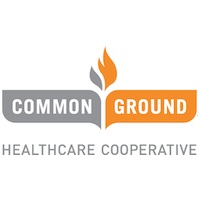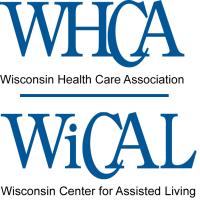
Hospitals begin providing care postponed due to COVID-19

Some Wisconsin health systems are starting to provide care they postponed in mid-March as they prepared for COVID-19. The hospitals say they can no longer defer some procedures that their patients need.
“We as an industry are safe, we’re prepared, we’re ready to serve,” said Jesse Tischer, president of regional markets at Aspirus. “Patients shouldn’t delay care because we’re ready to help them.”
Tischer said the previously delayed care is leading some patients to face additional complications and pain.
They’re using guidelines
developed by the American College of Surgeons on case selection and have put in place surgical review committees at each of their locations to make some of those decisions.
Procedures they are looking at restarting include heart valve replacement, aneurysm repair and spinal disc repair.
Tischer, who’s also the interim president of the health system’s Wausau hospital, said how they’ll move forward on care won’t be a “light switch” but more like turning a dial.
“If the environment changes, if all of a sudden any of our counties have an increase in cases or if our PPE supply chain is interrupted or if there’s a need for additional capacity across the state, we have to be able to quickly turn the dial back down,” Tischer said. “We’re taking it day by day, week by week.”
Jim Dietsche, Bellin Health’s chief operating officer and chief financial officer, said they’re looking at restarting certain procedures as they’ve received more personal protective equipment and have been able to get more timely COVID-19 test results, he said.
“We don’t want the general population to delay care too long that it becomes a very major problem for an individual,” he said. “We really want our community to know that we’re open for business and that we can do things safely.”
Dietsche said they’ve performed emergency procedures during the pandemic and they’re moving forward on procedures that are urgent or time-sensitive that could pose challenges for patients.
“We’re starting to call it co-existing with COVID-19,” Dietsche said.
UW Health, SSM Health and UnityPoint Health-Meriter said in a statement last week that they were “slowly resuming” patient procedures postponed at the start of the crisis.
“The postponement of these procedures and non-urgent surgeries was taken with the health and safety of patients and staff in mind,” the three health systems said in a statement. “That same patient focus is exactly why Madison hospitals are now making changes to safely increase the access to vital services.”
Starting in May, HSHS hospitals in Wisconsin will begin offering some surgical procedures that have been delayed.
“There are some cases in which procedures should not be delayed any longer and we have taken the necessary steps to ensure we can move forward and provide those patients that need care in the safest way possible,” the health system said in a statement.
Gundersen Health System is in the “process of beginning a limited relaunch of services,” spokesman Chris Stauffer said.
They have more than 650 virtual visit units up and running and are beginning to see high-priority, low-risk patients at their La Crosse outpatient surgery center, gastrointestinal lab and pain clinic.
Marshfield Clinic Health System plans to begin providing elective procedures and surgeries in the coming weeks due to “strong demand for procedures and services that had been temporarily paused to prepare for the anticipated COVID surge,” a statement noted.
Froedtert & the Medical College of Wisconsin health network will allow previously deferred ambulatory care visits that can’t be completed virtually and a small number of surgical cases to proceed effective May 1.
Spokesman Steve Schoof said the network will “proceed judiciously as we balance risks with patient care needs,” given the extension of the state’s safer-at-home order to May 26.
Children’s Wisconsin spokesman Andy Brodzeller said they’ve been slowly expanding the number of surgeries they’ve been doing each week. It’s still a “fraction” of what they did before the pandemic, he noted.
Every week they review potential surgeries and procedures to determine if delaying a surgery could have a negative outcome.
“Treating kids from across the state with serious health issues, there are some procedures that can only be delayed so long,” he wrote in an email. “Also, while a procedure like ear tubes may be considered elective, a loss of hearing can keep a young child from meeting important developmental milestones.”
Advocate Aurora Health spokeswoman LeeAnn Betz said Friday that they were extending existing restrictions on elective surgeries and procedures as well as non-urgent ambulatory visits through May 15.
“In the meantime, we are evaluating communities with low prevalence of COVID-19 to explore lifting restrictions,” she wrote in an email.
Department of Health Services Secretary-designee Andrea Palm told reporters last week that the state is working on bringing in more personal protective equipment to help hospitals take care of COVID-19 patients as well as start on deferred care.
“We are actively engaged with them in conversation about how to be good partners with them,” she said.
Hospitals have reported a significant hit in their revenues by delaying the procedures. The Wisconsin Hospital Association estimates that the weekly cost is about $262 million in net revenue.
Wisconsin Health News is removing the password on all stories related to the coronavirus. For the latest developments follow us on Twitter at @wihealthnews or check out our website. For complete healthcare coverage, sign up for a free trial to our daily email newsletter.








.jpg?bwg=1612548324)





















